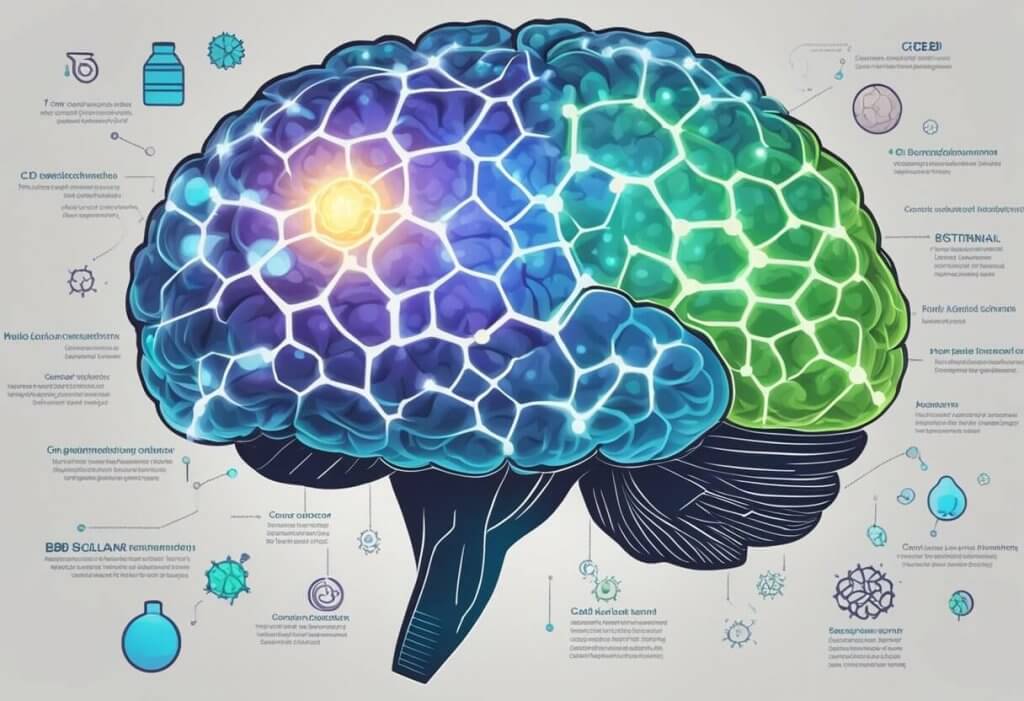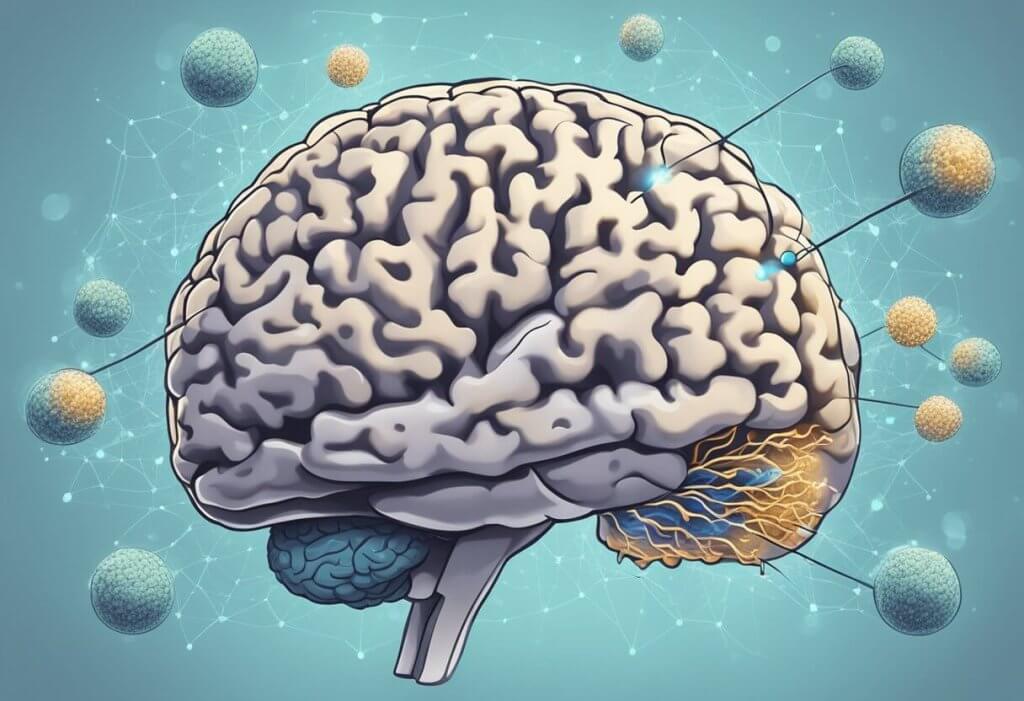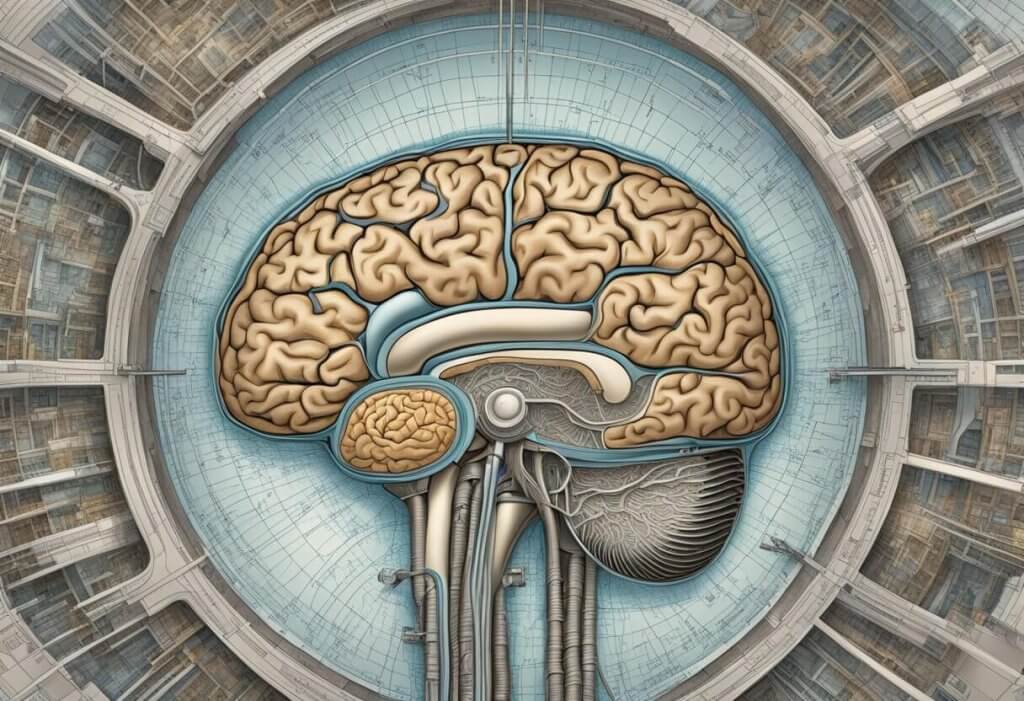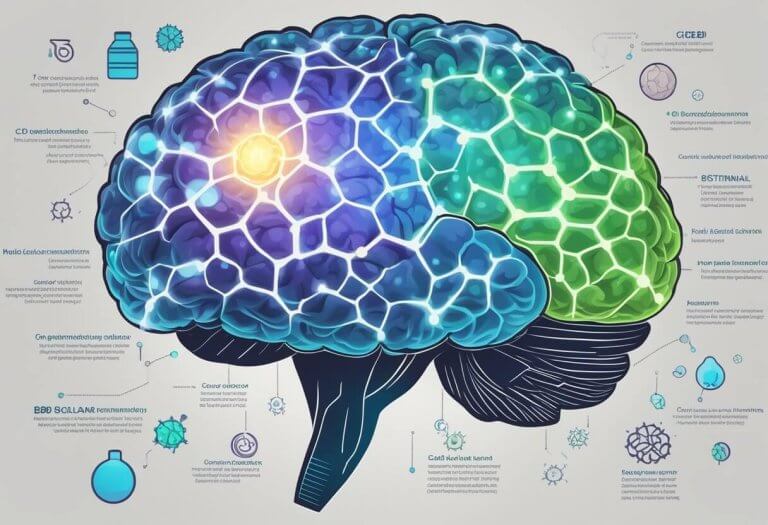How Cannabidiol May Support Brain Tumor Treatment
Disclaimer: The anecdotal benefits of CBD mentioned on this website are based on preliminary research and individual user experiences. All information presented here is not meant to substitute for or replace information from health care practitioners. Please click here for our full disclaimer, including side effects, FTC position, etc.
Glioblastoma, a devastating brain cancer, has left many patients and their loved ones searching for hope and alternative treatments. As more people turn to CBD as a potential complementary therapy, the question arises: Could this natural compound offer a glimmer of light in the face of such a formidable disease?

Imagine being told that you or a loved one has been diagnosed with glioblastoma, a type of brain cancer known for its aggressive nature and poor prognosis.
The news is devastating, and the standard treatment options – surgery, radiation, and chemotherapy – often come with a host of side effects that can significantly impact quality of life. It’s no wonder that many are seeking out alternative or complementary therapies, such as CBD, in hopes of finding relief and potentially improving outcomes.
As research into the potential benefits of CBD for glioblastoma continues to evolve, it’s crucial to explore the current state of knowledge and understand how this natural compound may fit into the larger picture of brain cancer treatment.
Key Takeaways
- CBD offers potential supplementary benefits for glioblastoma patients.
- Ongoing research hints at CBD’s capacity to impact glioblastoma progression.
- Anecdotal reports provide hope for CBD as a supportive therapy.
Potential Benefits of CBD for Glioblastoma
| Benefit | Mechanism |
|---|---|
| Anti-Tumor | Inhibits tumor cell migration/invasion |
| Enhanced Chemo Effects | Sensitizes cells to temozolomide |
| Anti-Inflammatory | Reduces supportive tumor environment |
| Symptom Relief | May help with pain, nausea, seizures |
Understanding Glioblastoma and CBD

In this exploration of glioblastoma and the role of cannabidiol (CBD), readers will discover what glioblastoma is, the potential of CBD in cancer treatment, and how CBD may influence the brain tumor microenvironment.
What Is Glioblastoma?
Glioblastoma, often abbreviated as GBM, is an aggressive type of cancer that can occur in the brain or spinal cord. Glioblastoma is known for its rapid growth and resistance to conventional therapy, making it the most invasive type of glioma. Patients diagnosed with glioblastoma multiforme face a challenging prognosis and limited treatment options.
Potential of CBD in Cancer Treatment
Cannabidiol (CBD), a non-psychoactive compound found in cannabis, has attracted attention for its potential therapeutic effects in various medical conditions, including cancer. Research suggests CBD may have several anticancer properties, such as inducing cancer cell death, inhibiting tumor growth, and blocking cell migration. In the context of GBM, studies highlight CBD’s capability to prolong survival in patients, though results can vary based on dosage and combination with other treatments.
CBD and Brain Tumor Microenvironment
The tumor microenvironment plays a crucial role in the progression and response to treatment in glioblastoma cases. Current findings show that CBD may help reduce the glioblastoma’s size by disrupting the tumor microenvironment, which is essential for the tumor’s growth and survival. This effect is particularly noteworthy as it could represent a new therapeutic avenue for treating such a resilient brain tumor. For instance, inhaled CBD shows promising results in shrinking glioblastoma and mitigating inflammation in animal models’ microenvironments.
Fact: CBD has been found to inhibit the migration and invasiveness of glioblastoma cells, which are key factors in the aggressive spread of this brain cancer.
https://www.frontiersin.org/articles/10.3389/fnmol.2018.00159/full
Clinical Outcomes and Research

Recent studies have shed light on the potential for CBD to improve treatment outcomes for glioblastoma, exploring how it may impact survival rates and symptom management alongside traditional treatments such as chemotherapy, radiation therapy, and surgery.
Quote from Expert: “Our studies have shown that CBD may enhance the anti-tumor effects of radiation and temozolomide, and so potentially increase survival in patients with glioblastoma multiforme.” (Source)
Dr. Sara Biela, Researcher at the University of Rostock
CBD’s Effects on Glioblastoma Treatment
Evidence suggests that CBD may hinder cancer cell proliferation and induce apoptosis, the process of programmed cell death crucial in stopping cancer growth. Integrative approaches involving CBD have shown promising effects on glioblastoma, especially when combined with traditional treatments like chemotherapy and radiation. For example, patients undergoing temozolomide-based chemotherapy have been noted to potentially benefit from oral CBD, as seen in some clinical studies that report attenuated tumor growth when CBD is used concurrently with chemotherapy agents.
Research on CBD and Glioblastoma
Clinical research points to CBD’s ability to inhibit angiogenesis, the process by which new blood vessels form from pre-existing vessels and which tumors exploit to grow. This property could significantly impact overall survival rates by reducing the nutrients available to the tumor. Studies examining inhaled CBD propose it as a relatively safe and uncomplicated adjunct treatment that might supplement the efficacy of existing immune checkpoint therapies. Furthermore, CBD is being investigated for its role in palliative care, as it might contribute to symptom management, enhance quality of life, and provide relief in patients experiencing side effects from aggressive treatments like surgery and radiation therapy.
Promising Study: A 2021 study found that CBD selectively enhances the anti-tumor effects of temozolomide (standard chemo drug) in MGMT-methylated glioblastoma, leading to prolonged survival in mouse models.
https://www.ncbi.nlm.nih.gov/pmc/articles/PMC8962752/
Frequently Asked Questions
As research into CBD’s potential benefits for glioblastoma evolves, it’s important to examine what we currently understand about its efficacy and safety. The following subsections address common inquiries regarding CBD and its role in brain tumor treatment.
Can CBD help in managing symptoms for those with glioblastoma?
Some studies suggest that CBD may alleviate symptoms related to glioblastomas, such as inflammation and seizures. However, its effectiveness can vary between individuals.
What’s the latest research on CBD for brain tumor-related relief?
Recent findings indicate that CBD may prolong survival in glioblastoma patients and, in some cases, could help reduce tumor size. Additional research is ongoing to better understand these effects.
Is Sativex effective in treating glioblastoma patients?
Sativex, a pharmaceutical product containing a mix of THC and CBD, is the subject of ongoing studies to establish its potential in treating symptoms and possibly impacting survival in glioblastoma patients.
Are there known side effects of using CBD for brain cancer treatment?
While CBD is generally well-tolerated, potential side effects such as fatigue, changes in appetite, and gastrointestinal issues have been observed in some patients using CBD for brain cancer treatment.
How do cannabinoids potentially influence glioblastoma growth?
Cannabinoids are believed to interact with the brain’s cannabinoid receptors. This interaction can potentially influence glioblastoma growth by modulating immune response and cell survival pathways.
“My husband was diagnosed with an aggressive glioblastoma last year. Along with standard treatment, he started taking CBD oil which helped tremendously with symptom management and seemed to enhance the effects of chemotherapy based on his scans.”
Karen M.

